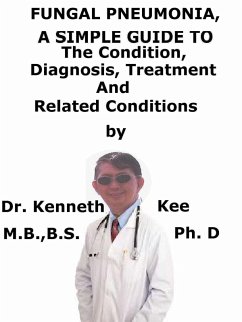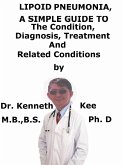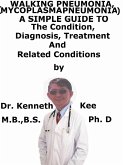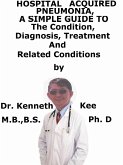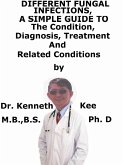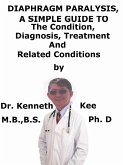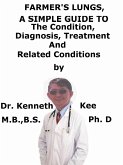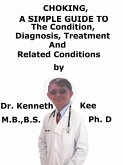Pneumonia is the main infectious cause of death in developed countries.
Most pneumonia is produced by viruses or bacteria.
Fungal pneumonias on the other hand are rare
Pneumonia is a frequent infectious disease and the main cause of death from an infection in the developing world.
Among the great range of respiratory pathogens, fungi are responsible for only a small part of community-acquired and nosocomial (hospital) pneumonias.
The fungal respiratory infections induce worry in the expanding population of immunosuppressed patients.
Fungi may develop in body sites without producing disease or they may be a true pathogen, producing a broad variety of medical syndromes.
Fungal pneumonia is an infectious disorder in the lungs produced by one or more endemic or opportunistic fungi.
It is normally a disease affecting people with weakened immune systems (immune compromised).
When it involves a person with a normal functioning immune system (immune competent) it is normally self-limiting and may not even require to be treated in some instances.
There are many different species of fungi that can produce pneumonia.
Many are not often heard of since it is so infrequent in human diseases.
It happens mainly as opportunistic infections when the immune system is compromised.
Leukemia, diabetes and HIV are some of the disorders where the immune system may be weak to the position that fungi can invade the lung tissue.
Fungal pneumonia can go on to become disseminated disease where it involves other organs like the brain, liver, kidneys and heart and cause life threatening complications.
Causes
Fungi may produce lung disease through direct infection of pulmonary tissue, through infection of pulmonary air spaces/lung cavities, or via their capability to activate an immunological response when fungal material is inhaled.
The latter mechanism happens in cases of allergic bronchopulmonary aspergillosis, aspergillus-induced asthma and external allergic alveolitis due to fungi (e.g., maltworker's lung, farmer's lung).
With the exception of aspergillosis, these infections are normally absent to a significant degree in immunocompetent persons.
They tend likely to involve:
1. Those who have traveled abroad to areas where they are endemic, or
2. Happen as opportunistic infections in patients who are immunocompromised as a result of:
a. Cancer treatment, due to
b. Immunomodulation after solid organ transplantation, or
c. HIV infection.
Most strains of this fungal mold are harmless, but a few can produce severe illnesses when people with weakened immune systems, underlying lung disease or asthma inhale their fungal spores.
In some people, the spores activate an allergic reaction.
Other people form mild to serious lung infections.
Pulmonary infection happens after inhalation of spores/conidia, or by the reactivation of latent infection.
Endemic fungal pneumonia pathogens
1. Histoplasma capsulatum causing histoplasmosis.
2. Coccidioides immitis causing coccidioidomycosis.
3. Blastomyces dermatitidis causing blastomycosis.
4. Paracoccidioides brasiliensis causing paracoccidioidomycosis.
Opportunistic fungal pneumonia pathogens
1. Candida spp. causing candidiasis.
2. Aspergillus spp. causing aspergillosis.
3. Mucor spp. causing mucormycosis.
4. Cryptococcus neoformans causing cryptococcosis.
Outdoors, fungi can be found in decaying leaves and compost and on plants, trees and grain crops.
When mold spores are inhaled, immune system cells enclose and kill them.
The treatment for fungal pneumonias must involve antifungal agents.
TABLE OF CONTENT...
Dieser Download kann aus rechtlichen Gründen nur mit Rechnungsadresse in A, B, CY, CZ, D, DK, EW, E, FIN, F, GR, H, IRL, I, LT, L, LR, M, NL, PL, P, R, S, SLO, SK ausgeliefert werden.

